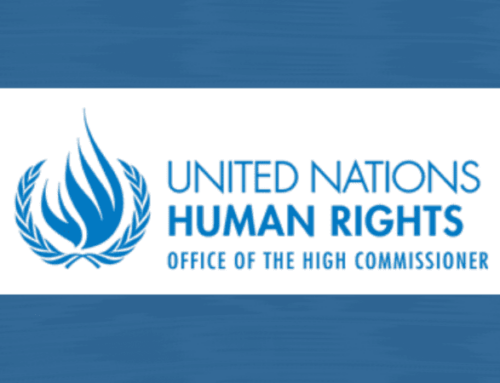Monitoring of the case of V.F. Yanukovych (from 12.22.2020)

On December 22, 2020, a hearing on the case of the fourth President of Ukraine Viktor Fedorovich Yanukovych (No. 757/16624/20-k) supposed to be held in the Pechersky District Court of Kiev.
A series of proceedings related to the mass protests on the Maydan in Kiev in 2013-2014 are still being investigated and considered. In particular, several cases were opened against V.F. Yanukovych. This proceeding, which is still at the pre-trial stage, is based on the ex-president’s suspicion of organizing the persecution and murder of participants in mass protests in Ukraine from February 18 to 22, 2014. He is charged with Part 1 of Art. 109 (seizure of state power), Part 2 of Art. 115 (deliberate murder of two or more persons in a manner dangerous for many persons by prior conspiracy as part of an organized group), Part 2 of Art. 121 (intentional grievous bodily harm), Art. 340 (illegal obstruction of the organization or holding of meetings, rallies, demonstrations), Part 3 of Art. 365 (abuse of power or official authority).
On December 22, the court was supposed to consider the petition of the prosecutors to choose a measure of restraint for the suspect V.F. Yanukovych, but before the hearing itself it became known that the prosecutors also filed a petition to clarify the decision of the Kiev Court of Appeal, after which all the materials of the case were submitted to appeal (recall that the petition for the selection of a measure of restraint was sent back at the end of April 2020. On May 12, a decision was made to arrest V.F. Yanukovych in absentia, but on November 16, 2020, the decision was canceled).
The lawyers believe that the reason for such “disruption” of the session by the prosecutors was that at the previous session the prosecutors again filed a motion to choose a measure of restraint, however, in order to do this procedural action in the absence of the suspect, except for the grounds provided for by Article 176 of the CCP, it is necessary to prove that he is on the international wanted list and, accordingly, the investigating judge demanded evidence from the prosecution as required by the procedure of special pre-trial investigation.
In accordance with the legislation, the decision to declare a person on the international wanted list on the basis of a request from the National Central Bureau (NCB) of Interpol in Ukraine is made by the General Secretariat of Interpol or the NCB of Interpol of the respective country. The provisions of Art. 281 of the Criminal Procedure Code of Ukraine provide that information on the declaration of a person on the international wanted list must be entered in the Unified Register of Pre-trial Investigations. But, since there is no note in the Register that V.F. Yanukovych is on the international wanted list, then, accordingly, the prosecutor’s office was unable to collect information and submitted materials that are already in the case, as the defender notes. And in the ruling of the Kiev Court of Appeal of November 16, 2020, which canceled the arrest in absentia of V.F. Yanukovych, it is also indicated that the suspect is not on the international wanted list.
It should be noted that this criminal proceeding was opened on February 25, 2014 and is still at the stage of pre-trial investigation (for more than six years), while Part 2 of Art.219 of the Criminal Procedure Code of Ukraine for this kind of proceeding provides only eighteen months for a maximum period of pre-trial investigation. That is, in spite of everything, the problem of violation of reasonable time limits, which was noted by the ISHR observers in many reports, as well as highlighted in the 2019 Report, continues to exist.
According to the decisions of the ECtHR, the reasonableness of the length of the proceedings is determined taking into account the circumstances of the case, which require an assessment in aggregate (“Boddaert v. Belgium”, para. 36). In determining whether the length of the criminal proceedings was reasonable, the Court shall take into account factors such as the complexity of the case, the applicant’s behavior and the actions of the relevant administrative and judicial authorities (“Konig v. Germany”, para. 99; “Neumeister v. Austria”, para. 21; “Ringeissen v. Austria”, para. 110; “Pelissier and Sassi v. France”, para. 67, “Pedersen and Baadsgaard v. Denmark”, para. 45). The complexity of the case may be due, for example, to the number of charges, the number of witnesses and defendants participating in the proceedings, or the international aspect of the case (“Neumeister v. Austria”, para. 20). But, nevertheless, the ECtHR also notes that although the case may be quite complex, the Court cannot consider long periods of unreasonable inaction as “reasonable” (“Adiletta v. Italy”, para. 17).
According to para. 1 of Art. 6 of the Human Rights Convention, everyone has the right to a fair and public hearing within a reasonable time by an independent and impartial tribunal. This right is violated and even though some procedural actions are being taken, anyway one of the reasons for such a lengthy consideration may be the situation that prosecutors very often submit groundless petitions, for example, about the recusation of judges or the recusation of defenders of V.F. Yanukovych (again filed and will be considered by the court at the next hearing), which entails an unreasonable significant delay in the investigation of criminal proceedings. The European Court of Human Rights only takes into account delays in its decisions, sometimes referred to as “significant periods of inactivity”, which are believed to be the fault of the authorities. Delays due to the applicant’s fault, whether intentionally or not, are not taken into account in assessing a “reasonable time” (“H. v. The United Kingdom”, para. 45).
The date of the next hearing is still unknown, since this is possible only after the consideration of the case materials by the Kiev Court of Appeal. The International Society for Human Rights will continue to monitor and clarify the details of this case.








Leave A Comment